Two electric current I and II are shown in figure. 

Through which circuit, more current passes ?
Since, current∝1resistance
∴ So current is circuit II is more than the current in circuit I.
Topper's Solved these Questions
- ELECTRICITYBOOK - SURA PUBLICATIONCHAPTER - ELECTRICITYEXERCISE - ADDITIONAL QUESTIONS & ANSWRES (Value Based Question)
1 Videos
- ELECTRICITYBOOK - SURA PUBLICATIONCHAPTER - ELECTRICITYEXERCISE - ADDITIONAL QUESTIONS & ANSWRES (Numerical Problems)
8 Videos
- ACOUSTICSBOOK - SURA PUBLICATIONCHAPTER - ACOUSTICSEXERCISE - ADDITIONAL QUESTIONS & ANSWERS (VALUE B ASED QUESTION)
2 Videos
- HALF YEARLY MODEL QUESTION PAPERBOOK - SURA PUBLICATIONCHAPTER - HALF YEARLY MODEL QUESTION PAPEREXERCISE - MCQ.s
24 Videos
Similar Questions
Knowledge Check
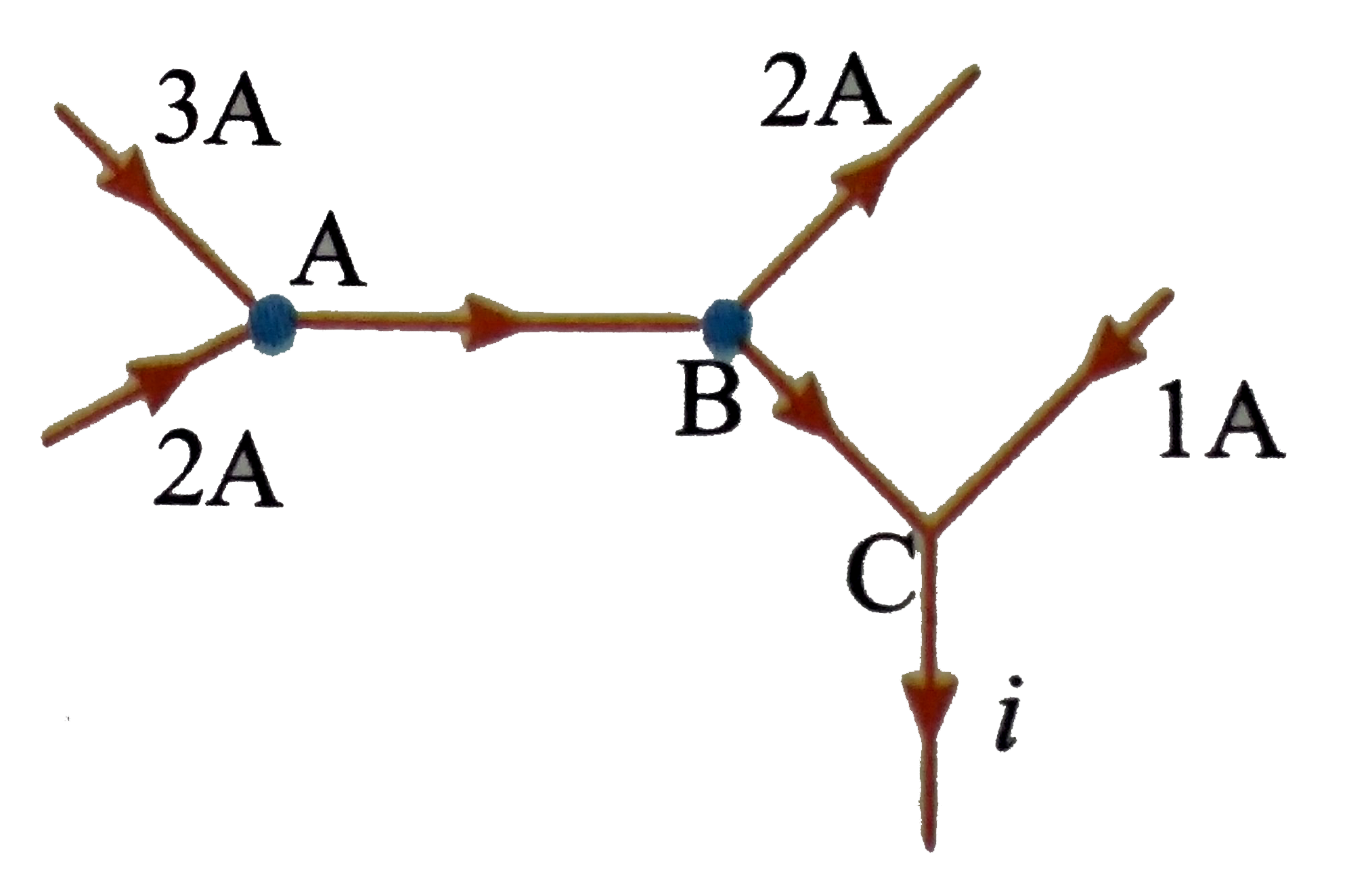
The electric current I in the circuit shown isA6AB2AC3AD4AFind current (i) in circuit shown in figure.
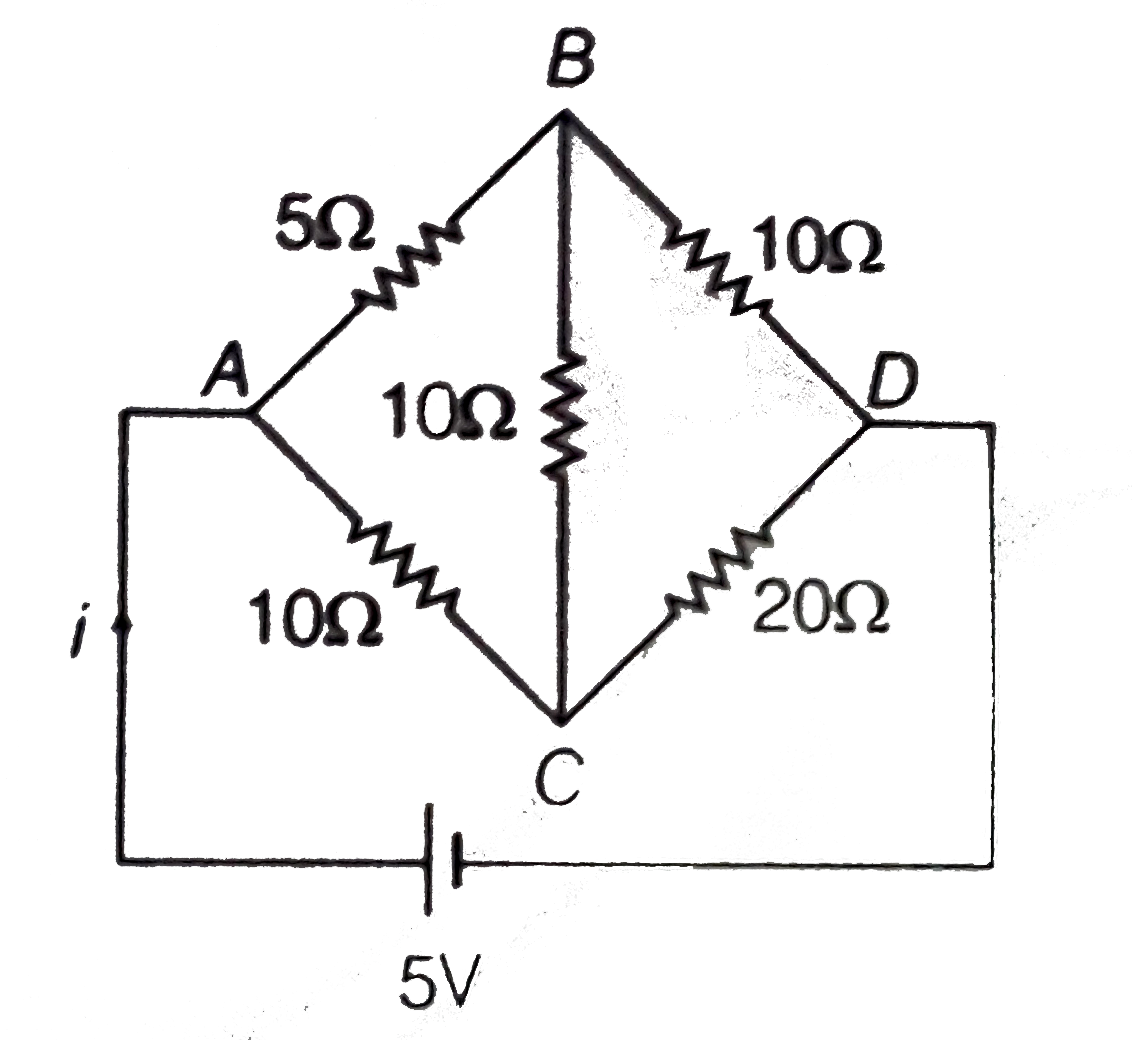 A0.5 AB0.2 AC0.041666666666667D0.083333333333333
A0.5 AB0.2 AC0.041666666666667D0.083333333333333In the circuit shown in figure current in the circuit is
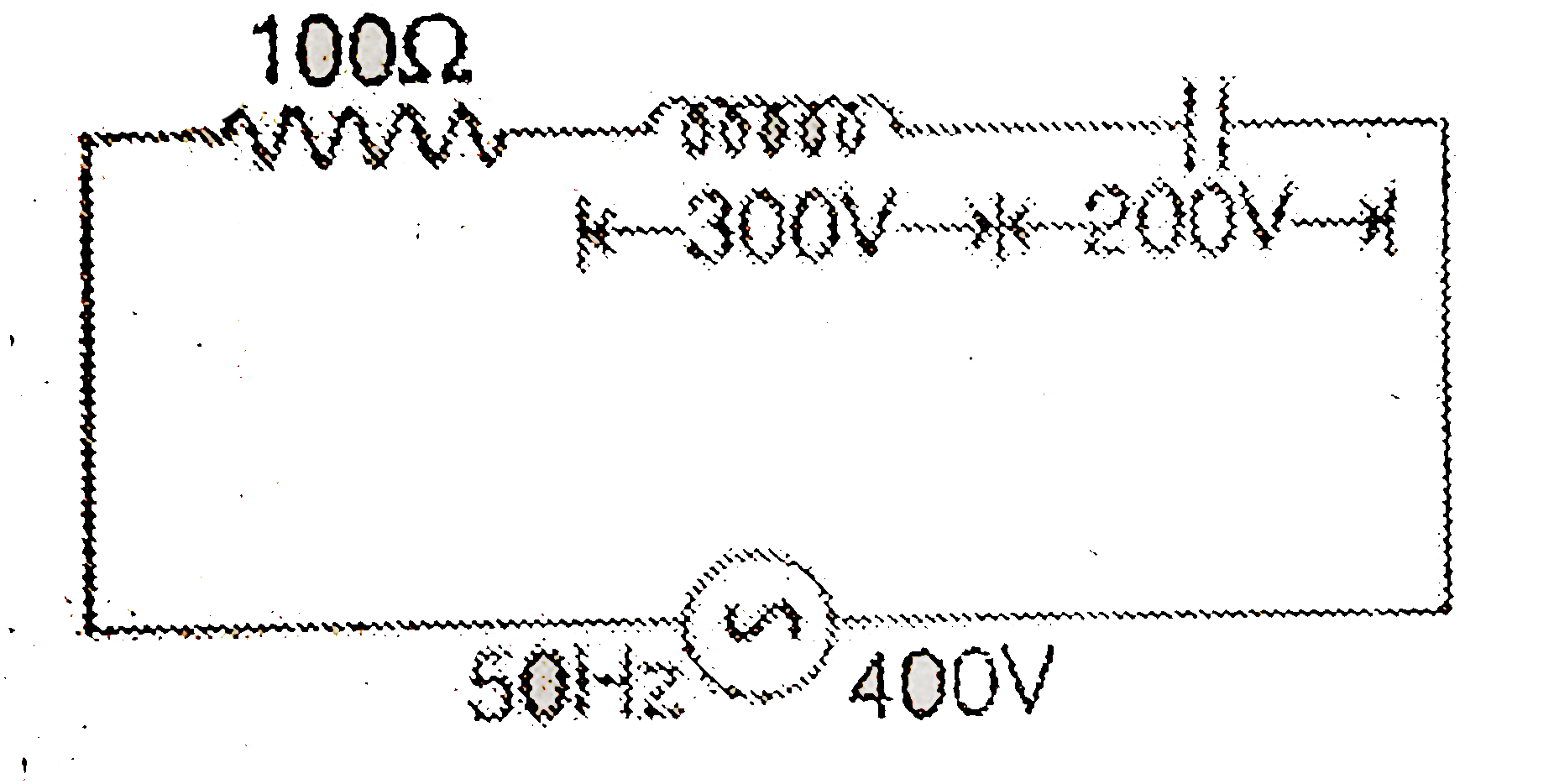 A1.27AB2.23AC4.26AD4 A
A1.27AB2.23AC4.26AD4 A
Name an instrument that measures potential difference between two points in a circuit.
Difine the unit of potential difference in terms of SI unit of charge and work . Draw the
circuit symbols for a (i) veribale resisitor , (ii) a plug key which is closed one .
Two electric circutirs I and II are shown below.
(i) Which of the two circuits has more resistance?
(ii) Through which circuit more current passes?
(iii) In which circuit, the potential difference across each resistor is equal?
(iv) If R1>R2>R3, in which circuit more heat will be produced in R1 as compared to
other two resistors?
 .
.
View SolutionName an instrument that measures potential difference between two points in a circuit.
Difine the unit of potential difference in terms of SI unit of charge and work . Draw the
circuit symbols for a (i) veribale resisitor , (ii) a plug key which is closed one .
Two electric circutirs I and II are shown below.
(i) Which of the two circuits has more resistance?
(ii) Through which circuit more current passes?
(iii) In which circuit, the potential difference across each resistor is equal?
(iv) If R1>R2>R3, in which circuit more heat will be produced in R1 as compared to
other two resistors?
 .
.
View SolutionIn the circuit shown in figure current in the circuit is

View SolutionIn the circuit shown in figure the current through
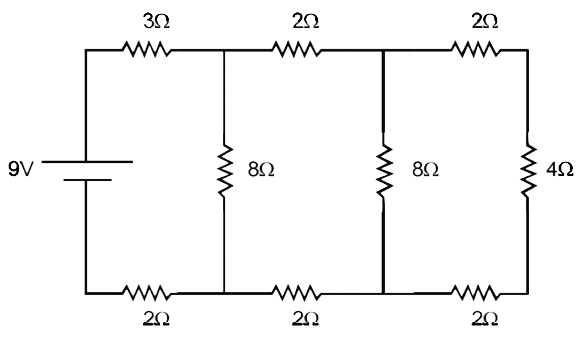
View SolutionIn the circuit shown in figure the current through

View Solution

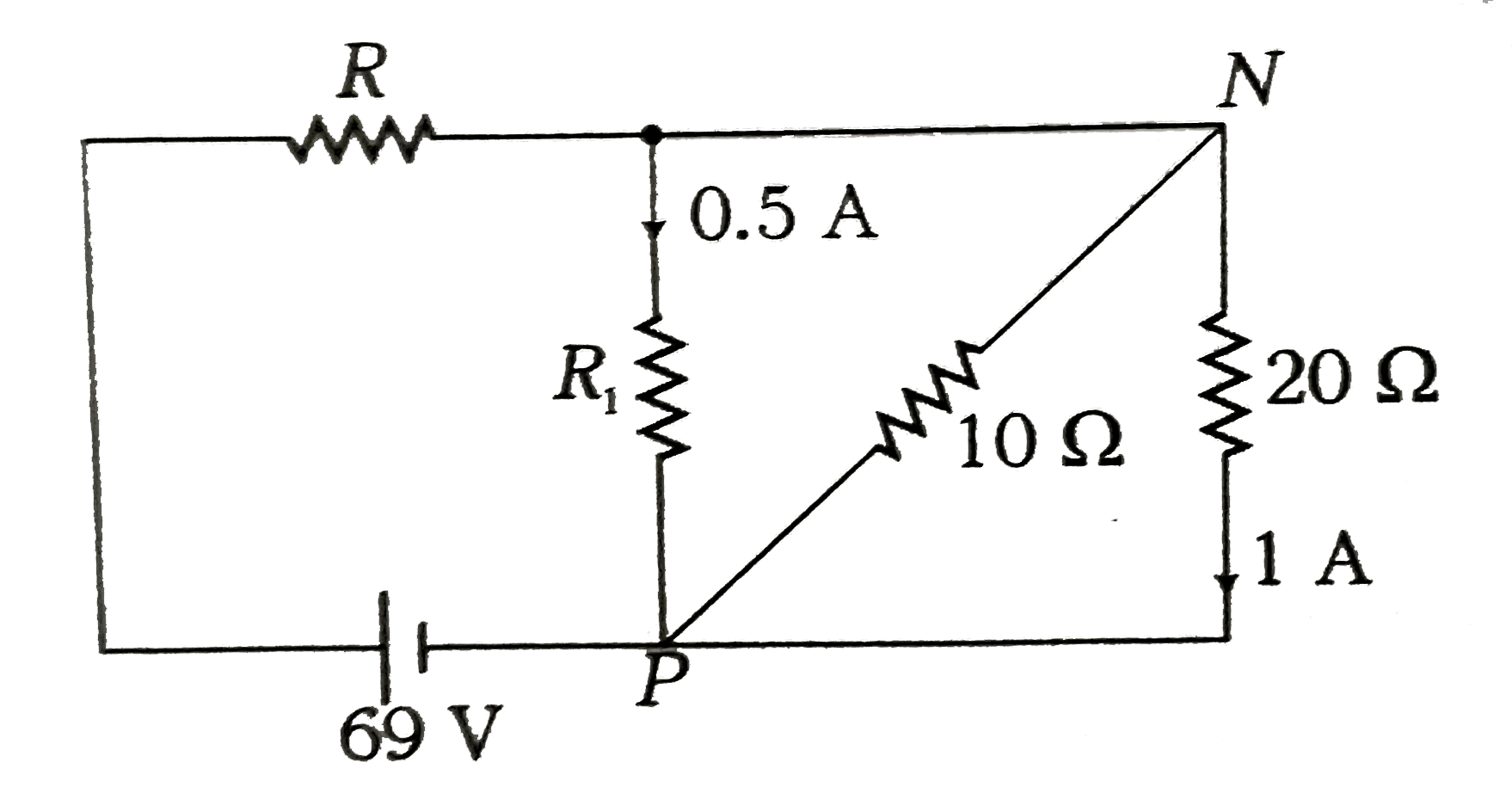
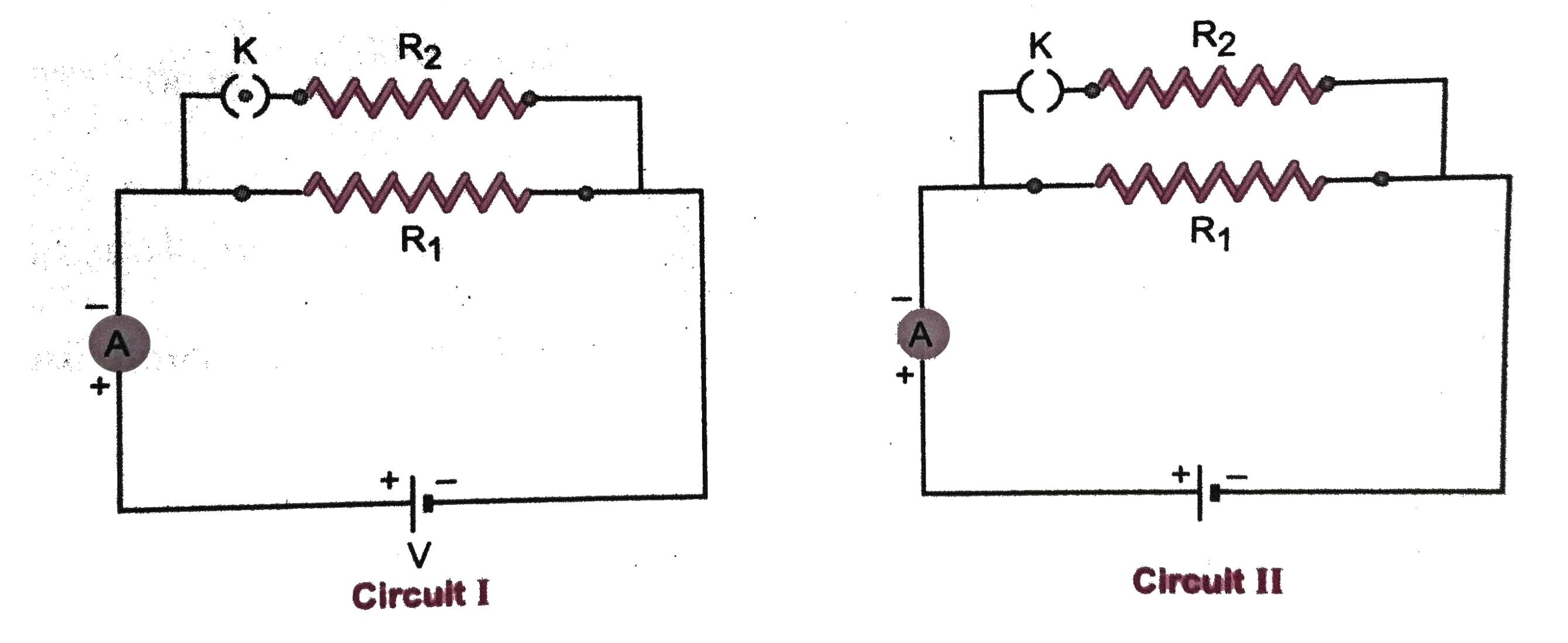 .
.